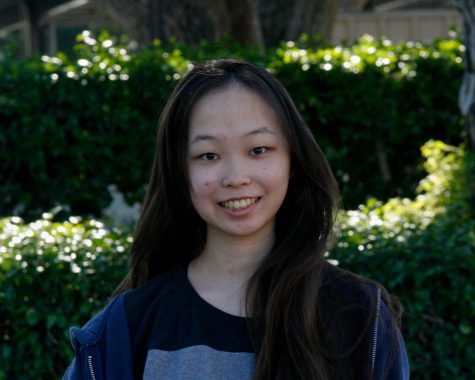Orange County Voters Now Predominantly Democrat For First Time in 80 Years
October 27, 2020
Orange County, for the first time in 80 years, has more voters registered as Democrat than Republican. It remains to be seen how this recent development will impact upcoming elections on November 3, including that of the California State Senate District 37 election.
As of October 20, according to the OC Registrar of Voters, there are a total of 1,759,370 registered voters in Orange County, of which there are 644,028 Democrats (36.7% of registered voters). Republicans have a close 34.2%, or 601,252 voters.
Orange County has been a historically Republican county, and this recent change is significant as it serves as an indicator of the changing political climate and voter profiles in the local community.
“We’ve dug into the numbers there on the voter registration,” Executive Director of the Republican Party of Orange County Randall Avila said. “Our door-to-door surveying showed an even cut of three ways how they changed. First, [people] were not aware their registration had changed [by] DMV handling, second, Republicans… felt their party was not strong enough behind President Trump, and third, traditional Republicans… disliked the president.”
An audit of the CA DMV looking at records between April and September 2018 revealed that there 83,684 duplicate voter records, among other errors with listing party affiliation. However, this did not affect voters’ eligibility to vote at the time.
Beyond past instances of DMV miscounting party affiliation, there are more current efforts that have been active in engaging voter registration.
“Seeing the activity and outreach and footwork of many DPOC [Democratic Party of Orange County] activities, sending hundreds and hundreds of volunteers to register voters and getting an accurate count for the OC Registrar, I don’t think that’s true,” Chair of the Democrats of Greater Irvine Jutta Gamboa said.
In response to whether the DMV audit undermined the credibility of the party affiliation count, “I think it’s active outreach, [and it] definitely played a big role,” Gamboa said.
There are many factors that have influenced changes in voters’ party affiliations.
“Well, true Republican values are not what is on display right now with the administration,” Gamboa said. “That’s what the whole Lincoln Project is about, and they see that the people right now are not true Republicans.”
Trump’s administration has also been a deciding factor in the votes of some former Republicans.
“People really felt that they liked the policies he had, but didn’t feel that the Trump’s administration, the national narrative, and defending the president reflected that,” Avila said. “[There is] a personality difference in the way the president speaks and the words he chooses to use.” Between the policies implemented by the administration, and the way Trump portrays himself, these former Republicans had a conflict of interest in identifying with their party.
Other former Republicans that have changed their party affiliation believe that there is a disconnect among party leaders.
“In terms of supporting the president a lot of those voters we spoke to [cited examples] of those examples of the late John McCain and high profile Republicans …and a number of those senators … felt the party wasn’t supporting him enough on party issues,” Avila said.
Other factors cited as contributing to Orange County’s change in voter affiliations is the changing demographic profile of Orange County.
“I think Orange County’s turn to blue is because of the increasing amount of immigrants,” senior Vaibhav Bommisetty said. “These districts turning even more blue may be due to a national trend of urbanization.”
The upcoming California State Senate District 37 election on November 3rd features the incumbent John Moorlach representing the Republican party, and David Min representing the Democratic party.
Incumbent candidate Moorlach received 132,275 votes in the primaries, which was 47.3% of the votes. Dave Min advanced from the primaries with 78,293 votes, or 28.0%. Both defeated the other Democratic candidate, Katrina Foley, who had 68,952 votes, or 24.7%.
Moorlach’s campaign issues include the safe reopening of schools, economic recovery, reducing homelessness, and opposing tax hikes, among others.
“Senator Moorlach has been a public servant with the orange county for a long time, calling out the financial crisis. [He is] someone who understands Orange County,” Avila said. “[He’s] really been a fiscal watchdog in Sacramento and will look at every bill line by line before he votes. Someone who represents his constituents well, and the only CPA [Certified Public Accountant] in the California legislature.”
Moorlach graduated from California State University at Long Beach, and before his work in the public sector, he was the vice president of accounting firm Balser, Horowitz, Frank and Wakeling. Most recently, he has served as California State District 37 Senator since 2015. He had previously been on the Orange County Board of Supervisors from 2006-15, and prior to that, he was the Orange County Treasurer-Tax Collector from 1995 -2006. Moorlach is regarded as an expert on municipal bankruptcy.
David Min’s platform aims to address issues such as healthcare, housing, and climate change.
“Dave Min is very educated, smart, and a professor from UCI, and his wife is also a law professor at UCI. He is very much into women’s issues, and a pro-choice proponent in support of Planned Parenthood,” Gamboa said. “He’s very much interested in climate change and environmental protections and doing what he can on the state level.”
Min is a UC Irvine Law Professor with a degree from Wharton and Harvard, and has worked in the public sector as an enforcement attorney, an economic and financial policy advisor to Senator Chuck Schumer, and an economic policy director at the Center for American Progress. He ran and lost previously in 2018 as the Democratic candidate for California’s 45th Congressional District.
It remains to be seen how this election cycle will be impacted as a result of Orange County’s change in voter affiliations.
“It definitely will be closer in my opinion, just a few years ago there wouldn’t have been a chance for any Democratic challenger against Moorlach in 2016,” Gamboa said.
Voting trends in Orange County may be an indicator of a more nationwide pattern. Of the 425,356 voters registered across the country as of October 20, 24.2% of voters are registered not identifying with a party.
“[There is] more of a national movement [of voters] saying they are not going to be married or dedicated to a party and it’s going to be by cycle,” Avila said. “Voters are not secure with their party…we gotta go out and get those voters”




